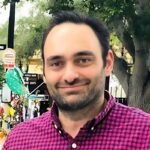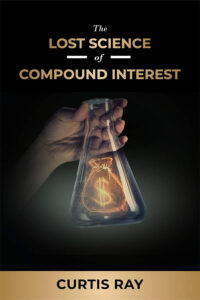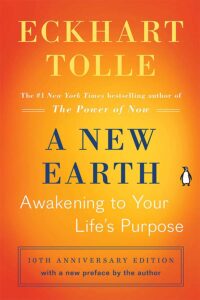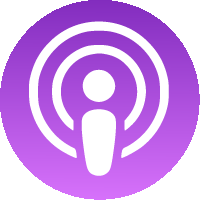“You should treat your personal financial life like a business.” That is what Joe DiSanto, creator of Play It Louder, has to say to all real estate investors out there. A fractional CPA, Joe helps investors automate their bookkeeping process so they can really understand what’s going on in their small business, as well as in their personal economy. Through his blog, he also helps high net worth individuals to help them understand how they can accelerate their net worth. Tune in to this episode and learn how someone like Joe can help you accelerate your business growth. He also shares why he decided to switch from the active side of investing to become more of a passive investor. Plus, learn why the book, The Lost Science of Compound Interest, is a must-read for real estate investors like you.
Check out some of Play It Louder’s most popular content…
The Financial Planning Process: Your Route to Financial Independence!
How to Incorporate Yourself to Save Money (and Protect Your Assets)
How to Make Your Money Work for You: 7 Modern Methods for Investing in “The Market”
Fundrise vs DiversyFund vs CrowdStreet: The Best Sites for Crowdfunded Real Estate Investing
Acorns vs Robinhood vs Webull vs M1 Finance: Which One is the Best?
—
Watch the episode here
Listen to the podcast here
Play It Louder: With Joe DiSanto
In this show, we have Joe DiSanto. He is a fractional CPA and a consultant to small businesses. He is also the Founder of the blog Play Louder, which is a resource for high-net-worth individuals to help them understand how they can accelerate their net worth. I was interested in having Joe on the show because he talked through different ways we can automate our bookkeeping process to understand what’s going on, not only in a small business but in our own personal economy. You also want to stay tuned to this episode because we go through Joe’s journey from an active real estate investor to a more passive real estate investor and why he decided to make that switch. I hope you enjoy this show.
—
Joe, welcome to the show.
Thanks for having me.
We like to start with the difficult questions. What’s your favorite ice cream?
That’s a tough one. I have a lot of favorites. One of my classic go-to favorites would be cookies and cream.
I love good cookies and cream.
I’m also big with chocolate and combo like chocolate and Heath bar crunch guy too. I try to mix it up.
Definitely toppings, not the purest.
I don’t do toppings, but there are some ice creams at our local place that have Heath bar crunch in them. I go for those.
You are in the Tampa, more specifically, Dunedin area. If we’re in that local area, where’s the best place we can go get some ice cream?
Our pretty much go-to spot is Strachan’s Ice Cream. They’re a little local chain. They got maybe 3 or 4 locations in the main spots of Pinellas County, and we have one right Downtown. That’s our go-to, and we like it.
I’m coming to Tampa at the end of December 2022, so I might swing over there and grab some. Tell our readers, what’s the scoop? What do you do now?
What I do is I’m a fractional CFO, which is a fancier way to say a part-time CFO for multiple small businesses and some higher-income individuals. I call myself a CFO/business manager. When you do it for people, often the term business manager is more commonly used. When you do it for a business, it’s more of a CFO thing, but it’s all the same principles because I always say you should treat your personal financial life like a business.
Otherwise, I have a blog, and I am a real estate investor. I am more passively real estate investing these days. I am less active. Prior to my gig, I lived in Los Angeles. I own a post-production and production company, and they’re still going. My partners cashed me in about 2018, mainly because we had a child a few years prior to that, and I quickly learned that children take up a crazy amount of your time. It depends on how you do it, but I didn’t want to be a complete either absentee, or not even physically absentee, but mentally absentee dad, where I was always thinking about work and on the phone, stressed out and whatever.
Up until having the kid, I could do work all the time, and then I would go out after and have fun and go for drinks. It was a carefree lifestyle, but all of a sudden, we had to get home, and it was no fun, it felt. I was all wound up and waiting for the call coming in. I couldn’t switch over to kid mode well. Somewhere along the line, my wife and I came up with this cockamamie idea to blow up our lives, try to do it differently, and figure out if we could work less and have a better family experience.
Somehow we mustered up the gumption to do that and ended up moving or what I like to call retreating to cheaper grounds because, in Los Angeles, the overhead’s pretty high over there. We ended up moving to the Tampa area to a town called Dunedin, which is a delightful little coastal small-town vibe. I call it a coastal suburb of Tampa.
In that transition, my partners at the time were supportive a little bit. It was crazy. They were like, “What if you just keep doing the finance stuff?” because I did a bunch of things. I was on the finance side, the business side, marketing, branding, and that kind of stuff. None of them had ever done any of the finances for the business and even paid that much attention to them because I’m pretty good at it, and I trusted myself. They were like, “Could you maybe keep doing that, and we’ll pay you a retainer or something because you can do it from wherever.”
Part of the other thing we wanted was more of a mobile lifestyle so we could travel more and not be chained down to the business, or at least that’s what I was thinking and wanting. I said, “That sounds like a good idea,” because I didn’t have exactly a plan. As I said, we’d done real estate investing along the way. We’ve been building our passive income, cashflow from real estate, and also from some stocks. That was going to be some of our income, but it wasn’t going to be enough. As I was saying before, maybe it could be enough if I was one of those extreme fire people and was willing to live on $30,000 a year, but that’s not us. We are creature comforts.
We were like, “If we combine that with a part-time income of some kind, we think we could do it.” My former partners teed up this fractional CFO thing. I didn’t even call it that at first, but I started to get some other clients. One of the clients, when we were having a conversation, they were like, “We’re looking for a fractional CFO. That sounds like what you do.” I was like, “I guess I am a fractional CFO.”
It’s a marketable term.
I was like, “That’s pretty good. I’m going to stick with that.” They ended up hiring me to be their fractional CFO. Since then, I’ve been slowly building that little business up. It’s like a business management firm. I’m not a CPA or an attorney, but what I find that I do is bridge the gap a lot between people, CPAs, and attorneys. CPAs and attorneys notoriously throw issues each other all the time, and I’m the glue. A small family office would probably be a CPA, an attorney, and a business manager like me. Sometimes let’s say that I offer the family office because my whole thing with working with people is not only to manage their money and whatever, but it’s to make sure that they’re on the road to where they want to go, which ultimately is retirement or some version of financial independence.
We’re all on that journey there, whether we think about it or not, and some of us are far more prepared than others. I found that even very smart people, hardworking people, and business owners, even though they’re super-capable, let their finances go by the wayside because they don’t have that much interest in it. They don’t understand the importance of managing it well, or they don’t have the time because they’re so busy. I try to educate them, keep them on target and help them have the plan to achieve what they want to achieve eventually.
Let’s talk about that because we have financial advisors out there that help people understand from an investment standpoint, “You’re going to need X amount of dollars in the future, and here’s our plan to get there.” One of the things that I think people are historically bad at, including myself, is looking at your personal economy. I’ve signed up for a tool called Personal Capital, which I linked all to my investments, my expenses, and my income coming in so it can give me a snapshot of how much is coming in, how much is going out, what I’m “profiting” or saving and investing. If I come to you for the first time, what does your cadence look like? How do you get people set up on the right?
It depends on how much they want to spend. For the people that want to hire me on retainer, a lot of times they’re business owners or high-income individuals, and they have enough money to spend on a monthly basis to have someone do this for them. I look at it like this. Let’s say you were thinking about investing in a business, and then you found out that they didn’t do any bookkeeping for the business. You would be like, “That sounds weird. I don’t know that I want to invest because how do I know if you guys are even profitable?”
They’re like, “Bookkeeping’s annoying. No one wants to do it. We’re focused on doing the business.” You would be like, “That’s crazy. It sounds stupid, and you’re dumb.” That’s what people are doing with their personal financial life. They’re not paying any attention to it. If someone’s going to hire me to do it all for them or “retainers,” a lot of times they’re a business owner, we start with their business. In their mind, they’re like, “I got to pay someone to do this for my business. I know it’s important.”
I educate them in this very simple idea that I know you’re doing your business for passionate reasons and all these important and good things, but ultimately, your business is there to build you a nest egg and provide for you in the long run in one way or another or, at least, a huge portion of what it’s there for. I’m like, “We can do your business finances, but if we stop there and don’t pay attention to the personal, we’re not seeing if the business is truly benefiting you in a good enough way in the long run.”
You may be doing your business for passionate reasons, but ultimately your business is there to build you a nest and provide for you in the long run.CLICK TO TWEET
Also, when it comes to your taxes and tax planning, the whole thing is one big system. The money in the business transfers over to you at some point in one way or another, and it goes down through the taxation process. Tax planning involves looking at both your personal finances and your business finances together to achieve the most efficiency. I always say to people that, “If you’re going to pay to do this, let’s go the extra step and do your whole financial life, and we’ll get you on a plan and track. You’ll know that everything you’re doing now is going to result in this far-off mystical requirement of retirement that eventually you’re going to need.”
I don’t like to boil down everything you do in life as preparation for retirement because it’s not just that, but the reality is that retirement, either forced or taken early, is coming. You’re going to have to be able to sustain yourself, probably without your business or without being able to work. You don’t want to start thinking about that too late. Usually, a lot of people call me in their 40s, and they’re like, “I’m getting tired. I have a couple of kids. College is getting close, and I don’t know if I’m prepared enough. I feel that I haven’t spent enough time thinking about this.”
That’s a lot of times when people come to a harsh realization. They’ve been working for twenty years. They’re starting to see that people in their 50s and 60s are getting replaced at their job by younger people, and it’s against their will. You can’t work forever, nor do you want to work forever. I don’t care how much you love your job or your business. I try to help people to look at the big picture, have a plan, and stay on track.

Play It Louder: You can’t just work forever nor do you want to work forever, no matter how much you love your job or your business.
For the people that are very deep into their business and might not have a passion for finance or know that they need to get their financial house in order but don’t particularly care for finance, do you have any tools or processes that you recommend for them to capture some of this data and get going in the right direction?
I never answered your very direct question about how you set people up. My preference is Quicken for the personal finance world, even if you are the sole owner of your business and your business is not particularly like retail, and has inventory and various things. It’s more of a consulting thing or a smaller-scale thing. I do it all in Quicken. Unlike Personal Capital, Quicken was the original personal finance app where you had to go to Staples and buy a CD or whatever.
I started using it in college because I was going into big debt and was like, “I feel like I got to pay attention to how much I spend in a day.” It started where you read some books about how to do that, and people are like, “You got to keep a journal and write it down.” I started writing it down, and at the end of the week, I was trying to add up all these pages of notes. I’m like, “There has to be a computerized way to do this.” There was. I started with Quicken a long time ago, and I like it.
It’s the most robust. You can grow with it, do your business there, do your real estate there easily, do your investments, do your personal accounts, and it can grow with you. I’ve managed a lot of stuff in my Quicken. Whereas some of my personal capital, it’s cool. It’s a free tool. It’s web-based. I did back in the ’90s. Now, you don’t have to do that anymore.
There are plenty of tools. Personal Capital, as you said, is one of them. To me, Personal Capital is a free tool and a lead generator for an investment company. It’s not going to be built solely for this purpose, but it’s pretty good for free. There are other things. Mint is free, but you got to endure all ads and things like that. Quicken, I like it. The only problem with Quicken is that it’s so old. I call a legacy stuff, where when it was built, it was a database file on your computer. Quicken used to be owned by Intuit, which owns QuickBooks. They used to own both brands. They sold off Quicken, bought Mint, and made Mint their personal finance brand.
Quicken has continued on. It was bought by private equity. They’re slowly figuring out a way to transition to being fully a web-based thing, but now, it straddles both worlds. It still has a database file then it syncs online. I like it because it’s faster to work on a database file on my computer and has a portal that my clients can log into if they want. That was a long diatribe about Quicken. I don’t work for Quicken.
The importance here is that you have software that’s automating what you’re spending, what’s coming in, and your assets so you can understand where “profiting” or saving and investing each year.
As I mentioned, you treat your personal finances like a business. You do bookkeeping, which people do find tedious. If you have the money and can pay someone to do it, great. The other option is maybe you hire someone to be a coach where you talk to them once a month for an hour, keep you accountable, make sure you do your homework, and review your finances.
Treat your personal finances like a business.CLICK TO TWEET
The software is there to aggregate the data and then spit out a report that you can read and see, “I made this much money. I spent this much money. This was the difference. This was the net income, AKA my savings, and I’m doing well,” or, “I made this much money, but I spent this much money. I lost money this year. I didn’t save anything. I went in the hole.” People can sometimes fake themselves out. There are lots of gimmicks for saving. You put some money in this account every month and pay yourself first.
Those are all good things, but at the end of the day, if you put $10,000 in this savings account, but then your credit card balances go up by $15,000, you didn’t save any money. You lost $5,000. Doing it for real, like a business, you can see the true reality, but it takes a little bit of work with the bookkeeping. You either got to decide, “I pay someone to do it. I’m going to do it myself. I’m going to do it somewhere in the middle and have a coach and have someone that I report to.”
It’s not unlike a trainer at the gym. I’m good at doing my finances. I don’t know why I weirdly enjoy it. I always have. It’s therapeutic for me, but I hate going to the gym. Those two things are good for you. They’re good things to do, but for whatever reason, I’m not a gym or exercise person. I have a trainer, and I begrudgingly drag myself over there because I know he is waiting, and I feel guilty if I don’t show up. That can work with your finances as well.
I had someone once say, “You need to tow your money where to go, not ask it where it’s been.” That’s how I’m summarizing this whole conversation.
It’s about getting the information and being in control, making informed decisions based on data going forward in your life.
One of the things we were talking about before the show is how you’ve been able to achieve a level of financial independence through investing and through real estate investing. I know that you’ve done commercial and some residential. Help us understand. What does your portfolio look like?
In the last few years, I’ve transitioned my portfolio to be a little less real estate heavy because I was pretty much almost 75% to 80% real estate in my portfolio most of my investing years. I have always liked real estate. The stock market is a mystery that there are so many things going on there, and many weird things could happen.
Elon Musk could tweet something, and the stock will go down, but real estate’s simple. There are a few major systems in the house. You got income and expenses. It’s a little business, and it’s tried and true. Ultimately, you get a superior return for less risk on the whole with real estate. I’ve always made that my focus, but I went down the route of getting a lot of single-family rentals. I did well with them on appreciation because the last decade has been a bull market of everything but the cashflow is pretty random.

Play It Louder: Real estate is tried and true. Ultimately you get a superior return for less risk on the whole with real estate.
It could be a good year. You could have a great year, and then the AC breaks, and you unwind all your cashflow. I couldn’t do single-family rentals in California because it’s too expensive. I went to smaller markets doing turnkey stuff. You have management fees and all that too, but I did it anyway, and it worked out well. I decided in the last few years that I want to balance my overall portfolio to not be so real estate heavy. Now, I’m 50% real estate equity and then 50% others, mostly market stuff, but some market, some crypto, and some insurance.
I agree with you on the single-family. It’s very lumpy. I still have a single-family portfolio, but I got tired of the fact that one thing could happen, like AC, roof, or flooding, and all of a sudden, you lose your cashflow for the entire year in that unit. It’s a single-point failure. I started moving into the commercial real estate side. What does 50% of your real estate look like? Is it commercial? Is it single-family?
One thing that we did along the way with the business was we bought two buildings to house our business sequentially, not at the same time. We bought and fixed up a commercial space from 2018 and 2015. We sold that, made some money, and bought a better one. That is a big portion of my real estate side, the equity of that, and that produces cashflow. Even though I no longer am a partner in the business and renting that property, I get my cashflow from it, as do my partners. I don’t know what percentage. I would say it’s a very expensive building in Los Angeles, so that equity probably represents half of my real estate holdings.
I’m down to one single-family rental in Florida here that I manage. We have equity in our own home, which I consider an investment. My homes have always produced great returns as investments. The idea that your house is not an investment makes no sense to me. We have some equity in our house. What I did was as I sold off some of the other single-family rentals in the smaller markets, I took that equity and started doing syndications which are all commercial syndications. There is some industrial flex like a corporate office park and some retail.
All of those products are much more predictable, have steady cashflow, and I don’t have to do anything. I’m liking that so far. I still have one rental here that I’m in. We got the building that’s triple net and then a bunch of syndications. That is the real estate portfolio now. I found out over the years that I was up to ten single-family rentals. It’s if it wasn’t such good appreciation, I could be debating the value. A lot of people will say it’s hard to scale it.
The other thing about it is that I found was some people are like, “You buy the rentals. You get them paid off, and then they give you cashflow and perpetuity.” They never tell you that. They get trashed over the course of 15 or 20 years, and you have to do a complete whole home renovation at some point to get the property to be up to any reasonable rental state. I had to do that a few times.
There’s a sweet spot for turning over the single-families, which is not unlike how syndications work. Five to a ten-year timeline, see where the value’s going to be, and then hopefully, you get into it with relatively newer systems, and maybe you get onto that property before all those systems break down and you have to replace them. You actively manage your portfolio, but that takes work.
One of the things I love that you mentioned at the beginning of the show was being more intentional with your kid, and kids take up a lot of time and space. You want to make sure that you’re present with them. I go on big tangents about how people on social media are. I have this much under management and $1 billion AUM, but they’re not being intentional with their family, which makes them poorer than somebody like yourself who is, “I’ve got a decent size portfolio, but what I’m good at is being a great father.”
You mentioned that single-family is lumpy. I’ve had that experience since I’ve gotten involved in more syndications and putting together deals and things like that. It’s more stabilized, predictable cashflow, which in a time of 2021, it looked like a stupid decision. In the time of 2022, it makes me look like a brilliant decision. Steady Eddie up into the right is the best way other than let me try to find the next trend. As someone that’s not actively doing real estate every single day, how did you find your syndicators? How did you underwrite them as a person you wanted to invest with?
It is the standard bit of research, looking online, and talking to people. I go on shows like this, so I’ve met some people and gotten referrals that way from hosts like yourself. The ones that I ended up going with, which were two, I had calls with them and tried to do my best to vet how they manage their properties, how long they’ve been in business, and what their backup plan is. Do your very best to try to suss them out and get a good sense of how it’s going to go. I hired an outside firm to do vetting of them from a criminal perspective and had background checks done.
I spent some money to do that, but it gave me that final sense of security. It’s tough to hand over money to people. That’s why I always did it myself. It’s a little bit of a leap of faith, and that’s what got me over the final leap of faith. It’s weird that you have to ask the owner of the syndication company, “I need your Social Security Number because I’m going to go have a private detective essentially go and try sniff out if you’ve done wrong.” It’s awkward to ask that, but at the same time, if they’re like, “I don’t want you to do that,” you’re going to be like, “Why not?”
If you put yourself out there and are taking hundreds of thousands of dollars from people, you’re going to have to go under scrutiny a little bit. They were fine with that, and it was pretty par for the course. One of them, in particular, does a lot with larger family offices as well. They’re used to that. It’s big money. They don’t leave stones unturned, so it was normal for him, but for me, as an individual investor and first-time syndicator, it was a little weird, but that’s what they did.
I completely agree with the criminal check. I personally never have done that, but I’ve heard of other people doing that. At the end of the day, if somebody’s hesitant about you running background on them, there’s probably a reason why.
It’s not only a criminal thing. The owner of that company is a former attorney and thought a lot of that as value for him as an owner. There is, “Let’s make sure he went to law school where he said he went to law school.” It’s stuff like that. Once it all checks out, you’re like, “Did I need to do that and spend the money on it?” It makes me sleep at night.
The person I found that do a lot of that specifically for wealthy families, individuals, and, commonly, people spend, depending on how big the deal is, it’s from 0.5% to 1% potentially of the deal size, in the depth of the background check. The more you spend, the deeper and deeper I can go, but if you’re investing $50,000, you don’t want to overdo it. It’s not like you’re betting on the entire farm. Let’s check the basics and make sure everything he said checks out, and he hasn’t made anything up.
Joe, this is a fantastic conversation. I want to be cognizant of your time now and switch us to the last round. We’re calling this the Five Toppings. Our first one is, what is your favorite book or a book you’ve read that’s given you a paradigm shift?
A book I read was great because it spoke to a bunch of things that concerned me about commonly accepted retirement planning tenets, which was The Lost Science of Compound Interest. It turned out this book is pretty much a brochure for a company product that this dude, the author Curtis has created and sells. You could look at it that way. At the same time, even if you remove that, what he talks about and the problems of retirement planning and how essentially, the overall plan doesn’t add up that well. It was validating for me to read that. I ended up getting in touch with him, checking out his product, and even getting one of his plans. I like the book so much. He’s a very Math and data-driven dude, and there’s a lot of that in the book. That was something that grabbed me as of late.
The uninterrupted compound interest is the form of that. I was having this conversation. A penny doubled every day for 30 days is $5 million, but if you remove one day, it’s $2.5 million. It’s half of it. If you remove another one, it’s $800,000. The uninterrupted compound interest sounds like something I’d be super interested in.
It’s a good book in general, but I’d readily admit it is a bit of a brochure.
Here’s our second one. I believe that the person you become ten years from now is directly correlated to the habits that you have and the things you do every day. What are some of the habits that you have?
It’s a blessing and a curse, but I’m a bit obsessive and OCD-ish. I’m a Virgo, so I’m super organized, but I’ve put it to good use in my life.
When I get into a project, I get extremely focused and almost obsess about it until it’s done, which can be a killer. It’s part of the reason why I was saying I couldn’t switch gears when I got home with my son because my mind gets so focused. It’s a blessing and a curse sometimes. It’s a curse if you want to relax, but it is a blessing if you want to accomplish things. For me, that’s been one of the things that are worked well for me. It’s to get laser-focused on something and keep going until it’s done.
Get laser-focused on something and just keep going until it’s doneCLICK TO TWEET
Our third one is, what’s the best piece of advice you’ve ever received?
Just do it yourself.
What does that mean?
It’s maybe not the most perfect advice, but don’t rely on others. It’s the basic old tenet. If you want something done right, do it yourself. Until you can have the best people around you helping you achieve your goals, you got to focus and do things yourself. Learn a lot. Sometimes I say, teach yourself everything.
Our fourth one is, what are you most proud of in your life?
It would be tough to have one thing, and I would feel bad if I didn’t say it was my son because I am very proud of him. In terms of my own official accomplishments, I would say starting the business and growing the business. We started the business in 2006, where you couldn’t just have an online business and have no overhead. Post-production is a physical location type of operation.
We had to quit our jobs, put as much money as we had in the bank to get it going, take out a bunch of loans, and put everything we had on the line at the time with the idea that it may work or not, but we did it with my three partners. I worked the phones, and over the years, built it brick by brick. Before we knew it, we had 30 employees and two Emmys, and it was an awesome part of that.
Post-production work takes a lot of editing and hands on the keyboard and things like that.
It’s editing, visual effects, color correction, graphic design, and animation. We had two sound bays. Those artists are all working. It’s a long hour’s business. I was more business side, project manager and dealing with the clients but I didn’t miss working 48 hours straight to meet some crazy deadline for call of duty or whatever, but that’s still happening at our office probably as we speak.
Our fifth one is if you could sit down and eat a bowl of ice cream with anyone, dead or alive, who would it be and why?
Probably these days, it would be Eckhart Tolle. Do you know who Eckhart Tolle is?
I don’t.
The other is probably an even more life-changing book that’s not about finance. His seminal book is A New Earth. He’s a spiritualist person. He’s German, and every German we’ve ever worked with in the film business has been meticulous and intense and does beautiful work. He’s a German spiritualist. He’s written this book that is broken down to how to understand your mind and spiritualism in such an amazing, detailed, and thoughtful way.
I know it had a big impact on my life. Read it or listen to it. I’ve listened to it many times now. I listen to it going to sleep. At a time when I was like trying to get more into that, be more present and all the things I was talking about with my kids. I was open to it. It’s a profound book. I recommend it to everybody. It probably requires ten listens to get it all, but there are so many things that you’re like, “I never thought about it that way. That’s crazy,” in that book.
One of my favorite things about this show is somebody saying a random person like this that I’ve never even heard of and getting a chance to research them. That’s probably what my night will be like.
Check it out. You might even say he’s more known because of his book The Power of Now, but I would read A New Earth first and then read The Power of Now because A New Earth puts everything in a much bigger holistic perspective, and The Power of Now, you need to focus on that with that book.
Joe, this is a fantastic conversation. If our readers wanted to reach out to you or learn more about some of your courses and the things you’re doing out there, where’s the best place we could point them?
My website is PlayLouder.com. My slogan is, “Work smarter, plan better, play louder.” All my information and knowledge are there for free. You only have to read a whole bunch of articles to get it. Otherwise, I have courses and my three pillars of content which I call personal finance, entrepreneurship, and investing. I have distilled versions of my content for each of those pillars in these courses that you can buy. One of the most popular ones is the personal finance one. It’s called the Financial Independence Roadmap, and it walks you through how to make a plan for your future life.
Joe, thanks for coming to the show.
Thanks so much for having me.
Important Links
- Play Louder
- Personal Capital
- Quicken
- Mint
- The Lost Science of Compound Interest
- A New Earth
- The Power of Now
- Financial Independence Roadmap
- https://www.Linkedin.com/in/josephdisanto/
- https://www.Facebook.com/playlouderblog/
- https://www.Youtube.com/c/PlayLouder
- The Financial Planning Process: Your Route to Financial Independence!
- How to Incorporate Yourself to Save Money (and Protect Your Assets)
- How to Make Your Money Work for You: 7 Modern Methods for Investing in “The Market”
- Top 5 Personal Bookkeeping Software Options: Personal Capital vs Mint vs Quicken vs Money Dance vs Countabout
- Fundrise vs DiversyFund vs CrowdStreet: The Best Sites for Crowdfunded Real Estate Investing
- Acorns vs Robinhood vs Webull vs M1 Finance: Which One is the Best?
About Joe DiSanto

Joe DiSanto is a fractional CFO and consultant to small businesses and high-income individuals. He also founded the blog Play Louder, which serves as an invaluable resource to help individuals and business owners increase their net worth and plan better for their future.







